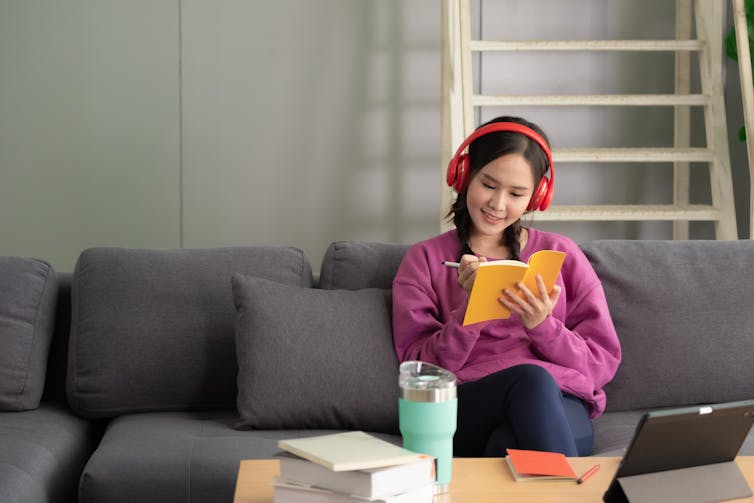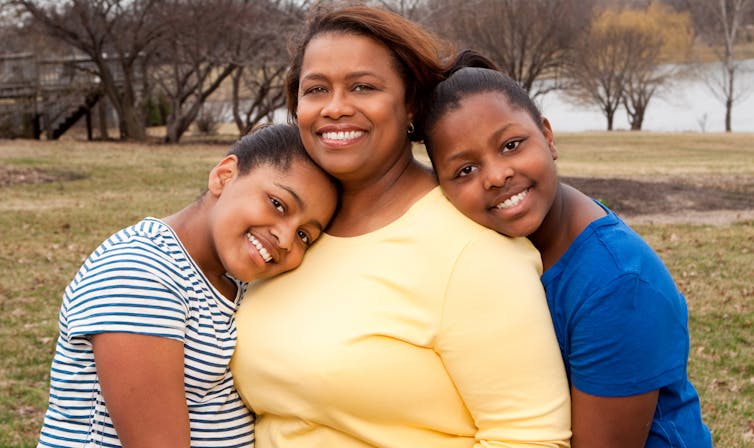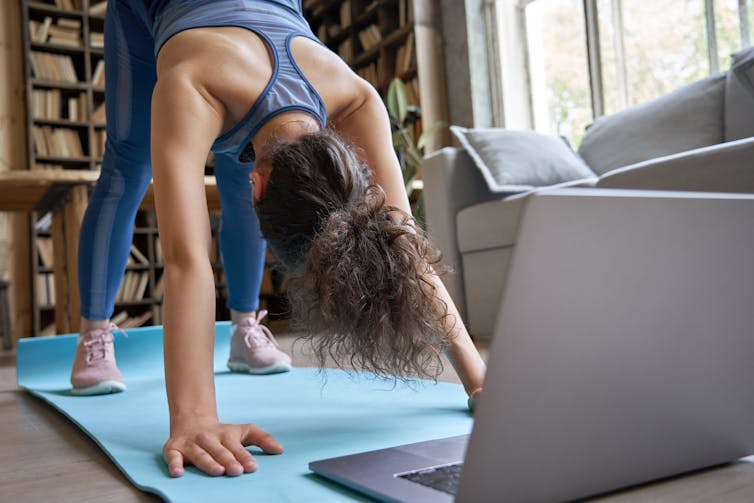Lockdown has been hard on teenagers, but they have shown remarkable adaptation

The COVID-19 lockdown upturned the lives of teenagers at a time when they are usually becoming more independent and taking steps toward their future. Instead, they were confined to their homes, exams were cancelled, and their next steps looked suddenly less certain.
Our research on – Teenagers’ Experiences of Life in Lockdown – explored how 109 UK-based 16 to 19-year-olds coped under coronavirus restrictions, with an emphasis on their wellbeing.
show that lockdown was an intense, challenging experience, raising feelings of loss and fear about the future. However, participants also described considerable effort to adapt, actively working to counter the negative personal impact of the lockdown and trying to think positively.
Coping with stress
Our participants described feeling overwhelmed and trapped, fearful about COVID-19, missing people that they couldn’t see face to face, and feeling uncertain about the future. Many teenagers found that milestones they had worked towards for years, such as exams, were suddenly gone. “When it was announced that GCSEs were cancelled, I was distraught,” one participant told us.
For some, being confined in family homes was distressing:
I’ve already got a history of mental health issues, being shoved into a house with none of my friends and any sense of normality shredded has certainly not helped.
They also expressed some mistrust and frustration with the government and media in lockdown. Some felt that the government was being vague about restrictions and easing the lockdown too soon, and this was making them feel anxious generally but also worried about the return to education:
I am unsure if I want to go back in September because I’m unsure that the government has the best supervisions.
Participants in the study reported often assessing the impact that the lockdown was having on them, and then proactively finding self-care and coping strategies to specifically counteract these negatives.
This included finding ways to distract themselves and escape, in order to avoid negative thoughts, and finding ways to relax, to counter difficult feelings and stress – such as engaging in hobbies, exercising, and spending time with (or virtually with) loved ones.
Our participants generally described working to ensure their coping strategies were in line with restrictions, although this sometimes caused conflict when household members disagreed about what was allowed and what was not.
For instance, one participant explained: “[Some days I’ll] go for a walk with a friend. However, [I] come back to face confrontation with my brother as he believes that to be unsafe.”
Staying positive
Teenagers told us they were attempting to stay optimistic. Many identified positive opportunities in lockdown, such as time to learn new skills and deepen relationships with their families. Some used lockdown to evaluate their lives, identifying things they appreciated and things they’d like to change.
 Teenagers reported that spending time with family was a positive aspect of lockdown.
Teenagers reported that spending time with family was a positive aspect of lockdown.
They also worked on creating routine and goals, as their days had lost structure and purpose, and being kind to themselves – with recognition that the situation was inherently stressful.
One teenager told us:
If I didn’t keep myself busy with the baby [brother], films or sketching I would allow the loneliness to consume me.
 Teenagers reported taking up exercise at home.
Teenagers reported taking up exercise at home.
Of course, self-care isn’t always easy. Some participants felt less able to look after themselves, and others described strategies they thought were problematic, like smoking or suppressing their feelings.
Participants often expressed gratitude for their circumstances, noting they were lucky to have resources such as access to outdoor spaces or positive relationships in their household:
I am very grateful for the position I am in, I generally get along well with my family and, with mum and dad working from home, we have been able to stay safe.
Hope for the future seemed important. Participants focused on what life would be like after lockdown and the things they would do. However, some were growing less hopeful about the pandemic ending soon, and felt disheartened:
I know it can be hard during such worrying times to be optimistic or hopeful but I think that it is really important that we remind each other that this is only temporary and that the best thing to do is just keep going forward.
Supporting teenagers
Our findings highlight the capacity for adaptation among our teenagers, offering a clear demonstration of resilience in the face of the pandemic.
On the one hand, this adaptation shows we must not underestimate the resourcefulness of teenagers. Supporting their emotional wellbeing at this time should include recognising and celebrating this, encouraging teenagers to reflect and feel empowered by their adaptation to the pandemic.
However, we cannot shift ultimate responsibility for their wellbeing onto teenagers themselves. Resilience depends on , such as family life, education, recreation, and healthcare. COVID-19 has in many ways to many of these systems.
Teenagers need to be given the tools they need to actively cope and should be supported when they are struggling. This can include having opportunities to reflect on and discuss how they are feeling, seeing those around them make use of healthy coping responses, and having time and space to relax and care for their own needs.
It will be extremely important to provide hope for the future for teenagers as the pandemic continues to unfold. Without a sense of promise for a future they can look forward to, adaptation and optimism may well become increasingly difficult.![]()
, Lecturer in Psychology of Education, ; , PhD researcher in Education and Mental Health, ; , Lecturer in Psychology, ; , Research assistant in Psychology and Education, , and , Reader in Counselling Psychology,
This article is republished from under a Creative Commons license. Read the .